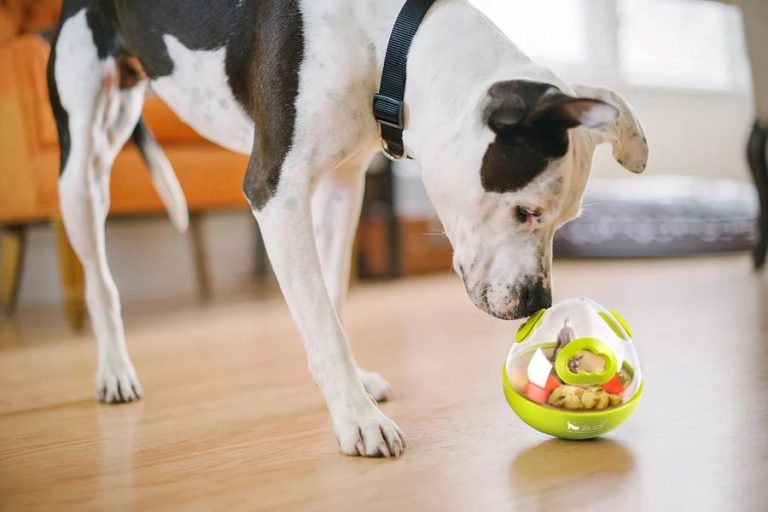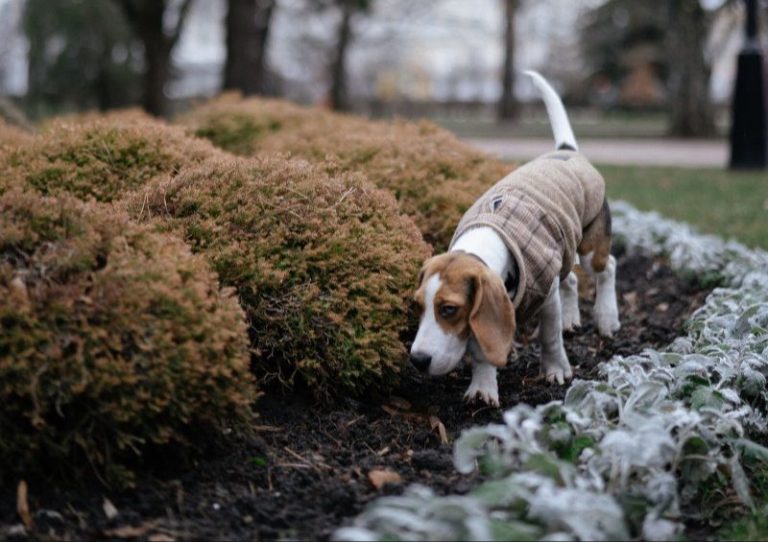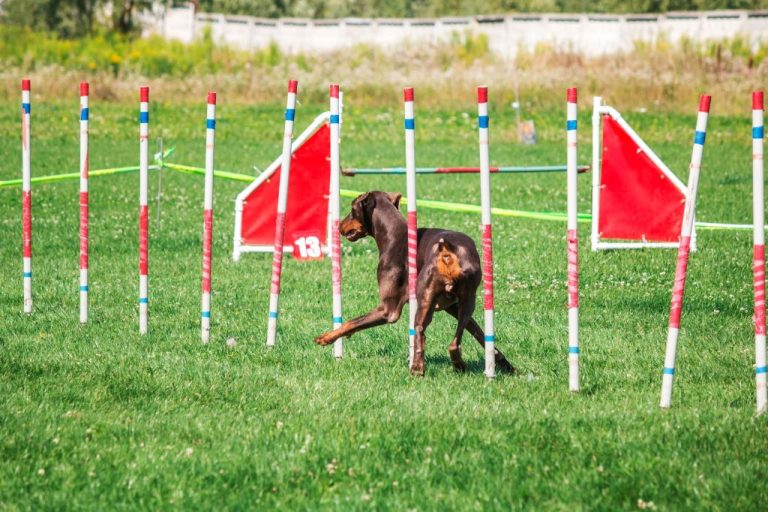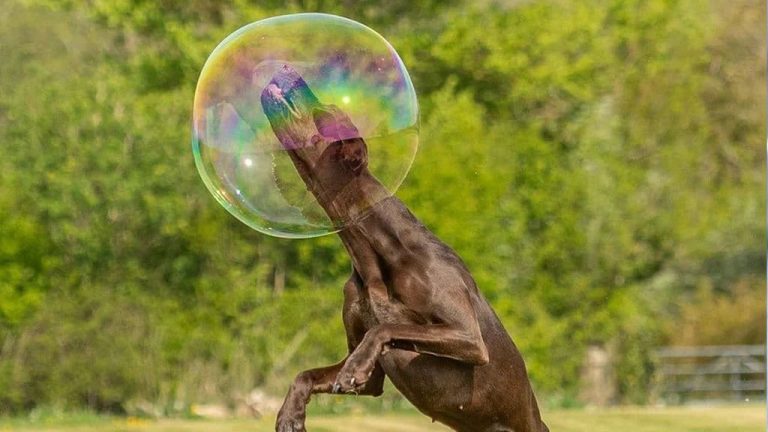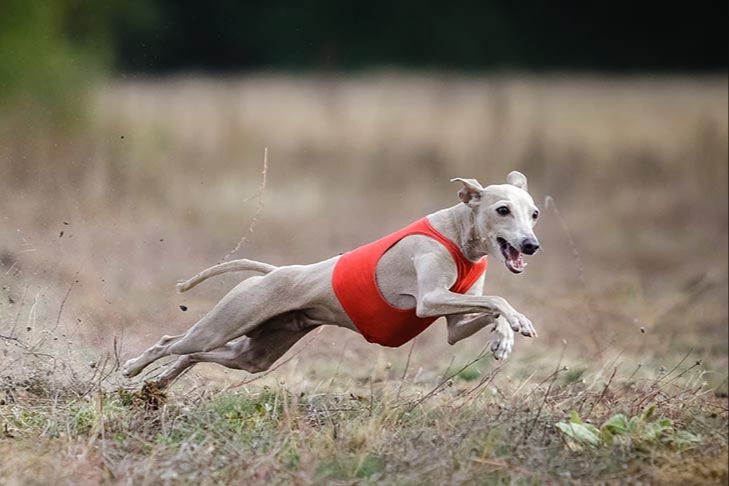Playdate Planning: Organizing Social Fun For Dogs
Regular playdates with other dogs are vitally important for your dog’s long-term social development and overall wellbeing. Unlike merely going to dog parks, playdates allow dogs to form closer bonds and relationships through consistent 1-on-1 interactions. As noted by Longwood Veterinary Center, proper pet socialization ensures a dog’s ability to react to the world without fear or aggression (https://longwoodvetcenter.com/pet-socialization-raising-a-well-adjusted-dog/).
Playdates provide numerous advantages over dog parks. Dogs can become overwhelmed in crowded, noisy dog park environments with unfamiliar dogs. In contrast, playdates offer controlled settings for dogs to socialize with familiar playmates. DogTopia points out playdates help ease dogs’ transitions into new situations and environments (https://www.dogtopia.com/blog/dog-socialization-benefits/). This allows for positive socialization experiences.
By organizing regular doggy playdates, owners can ensure their pets receive the social time they need in a safe, structured manner. Over time, these interactions lead to well-adjusted, sociable canines.
Choosing Playdate Dogs
When choosing dog playdates, compatibility between the dogs is key for ensuring a fun and safe experience. Consider things like personality, energy level, and size when matching up potential playmates.
Dogs with similar play styles and energy levels are more likely to have an enjoyable time together. For example, a high energy herding breed like a Border Collie may get frustrated by a more laidback Basset Hound who wants to lounge instead of play chase games. According to sources like The Wildest, picking dogs with compatible personalities can make playdates more rewarding for everyone.
Size compatibility is also important. Big dogs playing with small dogs runs the risk of accidental injury if the larger dog gets too rambunctious. Ideally choose playdates where the size differential is not too extreme. As recommended by The Spruce Pets, aim for dogs of comparable size for safest play.
Familiarity between the dogs helps as well. Dogs that have met before and know each other are more likely to play well together. Starting playdates with new dogs may require more supervision initially as the dogs get to know each other. But once they become familiar after a few sessions, relaxed play is more probable.
Taking the time to evaluate personality, energy, size, and familiarity can lead to great doggy playdates where all pups have an awesome time.
Pre-Playdate Preparations
A successful playdate starts with proper preparation. Be sure all dogs attending are up-to-date on vaccines and preventatives like flea/tick medication. According to the AKC, required vaccines include rabies, distemper, parvo, and bordetella (AKC). Unvaccinated pups can spread dangerous illnesses to other dogs.
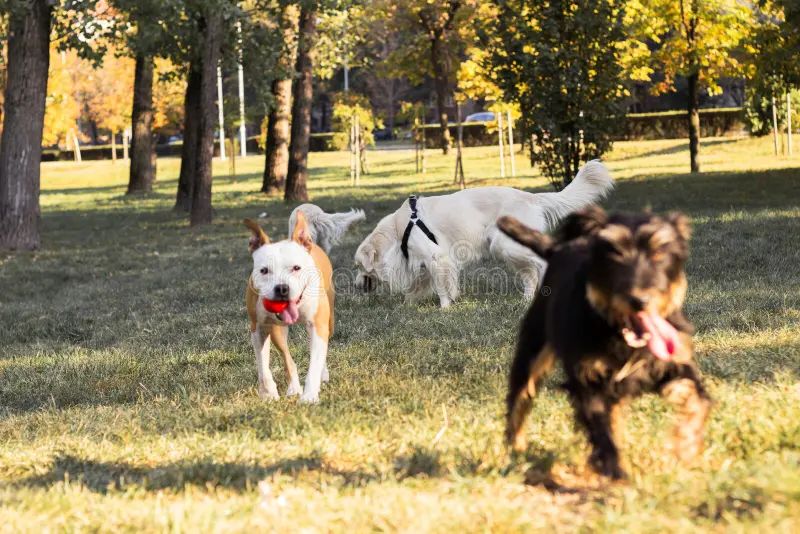
Have supplies ready before the playdate begins. Pack plenty of poop bags so you can promptly clean up any accidents. Bring water and collapsible bowls so dogs can stay hydrated. Have towels on hand to wipe messy paws. Prepare a pet first aid kit with bandages, antihistamines, antibiotic ointment, and other medical essentials. If any injuries or emergencies occur, you’ll be equipped to provide quick care.
Check your playdate location in advance and pick up any trash, sticks, or other hazards. Dog-proof your home by moving fragile items and blocking access to unsafe areas. Prepare a contained outdoor space by checking for gaps in fencing. Get toys, chews, and play structures ready to keep the pups happily occupied.
With preparation and planning, you can host a fun, safe playdate that brings joy to the dogs and humans alike!
Location Ideas
When planning a dog playdate, choosing the right location is important for ensuring a fun and safe experience. Some popular location options include:[1]
[2]
Fenced yards provide a safely enclosed space for dogs to romp and play off-leash. Look for sturdy fencing at least 4-6 feet tall that will contain even energetic jumpers. Make sure the yard is clear of hazards and debris.
Empty parks or fields allow plenty of room to run around. Look for low traffic times when few people will be around. Always keep dogs on leash for public areas.
Indoor play spaces like doggy daycares provide climate controlled fun. Many facilities have toys, pools, and agility equipment to keep dogs engaged. Supervision is provided to monitor play.
Arrival Etiquette
When the dogs first meet, it’s important to introduce them calmly and slowly. Keep both dogs on a leash during initial greetings. Allow the dogs to sniff each other while keeping a loose hold on the leashes so they can’t get too excited. Move slowly and let them get comfortable with each other. According to Kid Playdate Etiquette for Dog Families, the dogs should be side by side or head to tail, not face to face at first.
Let the dogs approach each other at their own pace. Don’t force them to interact or get too close right away. Give them time to relax and get used to each other’s presence. It’s a good idea to go for a short walk together before unleashing the dogs. This allows the dogs to bond while still under control.
Monitor Play
It’s important to watch your dog’s body language and behavior when monitoring play at a playdate. Healthy play involves loose and relaxed movement with frequent breaks, while problematic play may show signs of tension, fixation, or fear
(Preventive Vet, 2019). Pay attention for reciprocal back-and-forth chasing and wrestling, which shows cooperation rather than domination.
If play escalates into bad behavior, intervene immediately with a loud noise or distraction. Then, separate the dogs and give them time to calm down before carefully reintroducing them. Take mandatory breaks every 10-15 minutes to prevent overexcitement. Monitor dogs closely when toys are introduced, as resource guarding can trigger fights. With vigilance and patience, you can facilitate positive, controlled play.
After Playdate
It’s important to provide care for your dog after an active playdate. First, make sure your dog has access to fresh water to rehydrate. You can also offer a small treat as a reward for good playdate behavior. Then allow your dog ample time to rest and recover from all the excitement.
Thoroughly check your dog for any injuries that may have happened during play. Look for cuts, scrapes, limping or other signs of injury. It’s best to do this check right when you get home so you can address any issues immediately. Pay close attention to paws and legs since these are prone to overexertion injuries. If you notice anything concerning, contact your veterinarian.
According to users on Reddit (source), it’s common for dogs to be tired for a day or two following an active playdate at daycare. This extended fatigue is normal and shows your dog had a full day of quality play and stimulation. Make sure to allow plenty of rest time after social outings.
Troubleshooting
Not all dogs get along perfectly right away. Here are some tips for troubleshooting common issues that can arise during doggy playdates:
If the dogs seem wary or timid around each other at first, give them some time to warm up. Let them sniff each other in a calm environment before unleashing high-energy play. Go for a walk together first so they can get used to each other’s presence and smell. Gradually increase the excitement level of activities and toys. With patience, many dogs learn to become pals over multiple encounters.
If one dog seems overexcited, arousal levels may need to be managed. Have toys and chews on hand so the aroused dog has an appropriate outlet for their enthusiasm. Also utilize obedience cues like “sit” or “down” to redirect their focus and calm them. Take occasional play breaks to let everyone chill out. For very exuberant dogs, start playdates with brief 5-10 minute romps and work up to longer sessions as they learn to moderate their energy.
For dogs showing outright aggression, immediately separate them and end the playdate. Carefully reintroduce them in a controlled setting at a later time, keeping them leashed and rewarding calm interactions. However, some dogs simply don’t mesh and playdates should be avoided if aggression persists. Safety comes first.
With patience and proper precautions, most minor hiccups during play can be overcome. But if tensions run high, don’t force dogs to interact. Some personalities just don’t click, and it’s better to abort a bad playdate than risk fights or trauma. Referee carefully, act at the first sign of trouble, and stay calm.
Playdate Games & Activities
When planning games and activities for a dog playdate, focus on interactive and engaging options that allow the dogs to exercise both their bodies and minds. Some fun ideas include:
Interactive toys and puzzles: Dogs love toys they can manipulate like treat-dispensing puzzle toys. Set up a few around the yard and let them work together to get the treats out. This engages their natural foraging instincts.
Hide & seek: Have one person hold the dog while another person hides treats around the yard. Then let the dog go seek out the hidden treats. Make it more challenging by hiding treats in boxes or under cups.
Sprinklers/kiddie pools (summer): On a hot day, set up a sprinkler or kiddie pool for the dogs to run through and cool off in. Add toys that float for extra fun. Supervise water play at all times (Source).
Other fun games include fetch, tug-of-war, agility courses, and chasing bubbles. Get creative and set up activities you know your dogs will love!
Benefits of Regular Playdates
Regular playdates provide many benefits for dogs. One of the main benefits is improving dogs’ social skills. Interacting with other dogs allows them to practice doggy social cues and body language (https://thegrandpaw.com/play-dates-are-they-good-for-your-dog/). Playdates give dogs the chance to meet new friends, which expands their social circle. Through regular playdates, dogs learn how to politely greet and play with other dogs.
Another major benefit is reducing stress and anxiety in dogs. Dogs are pack animals that thrive on social interaction and physical activity. According to D’Tails Grooming, playdates give dogs an outlet to release pent up energy from being cooped up at home (https://www.dtailsgrooming.net/why-its-important-for-doggy-playdates/). Exercising and playing with other dogs leads to less frustration and calmer behaviors. The mental stimulation of a playdate can prevent anxiety and restlessness.
Finally, playdates provide vital mental and physical exercise for dogs. As Bil-Jac notes, play encourages dogs to fully utilize their bodies and brains (https://www.bil-jac.com/the-dog-blog/posts/the-benefits-of-dog-playdates/). Playdate activities like running, wrestling, chasing, and exploring provide a workout. Interacting with different dogs exercises a dog’s mind as they navigate various play styles. Overall, regular playdates keep dogs active, engaged, and healthy.

